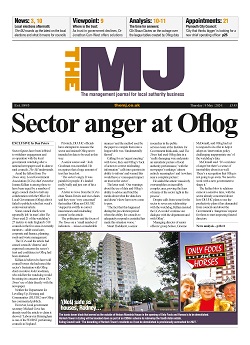The visceral power of re-imagining a new social contract between citizen and state, between rulers and those they rule, was first explosively presented by Jean-Jacques Rousseau in 1762. Rousseau’s thought leadership set out in this little book lead to the French Revolution and unprecedented social change in France and the rest of Europe.
As Britain splutters its way through a messy divorce with the EU and there is a vacuum of public policy left in its wake, perhaps that same courageous thought leadership that speaks to both citizen and state is needed again.
The gap between political leaders’ views of governance, of the role of both national and local government and what people need in local communities and in forgotten places has never been so cavernous as it is today. We need a new vision for the future of our communities – a new paradigm shift in thinking. It needs to be as compelling, as permanent, as outrageously challenging and as fundamental as Rousseau’s social contract. It needs to bring about an equivalent social movement – a thought revolution.
As chair of the New Local Government Network (NLGN) it is brilliant to see bold and humble examples of amazing community-driven, empowering local projects in our member councils.
They include initiatives such as world-class trauma surgeons tired of sewing up teenagers and working with gangs in London boroughs to proactively preventing knife crime with the slogan of ‘Forgiveness’.
As a senior local government officer for more than 30 years I have seen many of these brilliant projects come and go with limited lasting impact: Urban Programme, Single Regeneration Budget, City Challenge, etc...
At NLGN we are supporting councils and other public services to lead real and lasting change in their localities through an exciting new community paradigm. An irrevocable shift in both thinking and in power towards communities and away from expensive, ineffective, disjointed municipal solutions is required if we are to truly serve our residents in the way they expect us to.
The Community Paradigm is the fourth and final stage in the evolution of public services – the stage we all need if we are to truly be public servants.
Developed by Dr Adam Lent and Jessica Studdert, it is the best analysis – but with practical application – I have seen in ages. Some see the world through a social impact lens, a city vs town view, others from an inclusive growth angle. The Community Paradigm ties it all together for courageous public service leaders of place.
In the 16th century, the civic paradigm introduced patchy, localised taxation and burghs or boroughs were created around community settlements in feudal forts.
This continued into the early 20th century until the formation of the welfare state and the creation of the NHS, where a national 1940s factory production line model of nationalised, free at the point of delivery of services brought great relief to the nation at the time. The market paradigm was introduced in the 1980s to shake up the perceived complacency of the public sector. This thinking was based on the paradigm that the private sector is naturally productive and efficient, that competition is positive and that the public sector is inherently clunky and flabby and self-serving.
We are all searching for the Community Paradigm where we will achieve the freedom, the economic and social vision of the state serving the people through a different type of social contract.
The chains of individual public bodies seeing the world through their own lenses, of ‘intervening and prescribing’ formulaic solutions without knowing the person, the family and the community, need to be released. The bonds of community, family, of the millions of inventive, resourceful, determined, knowledgeable, grassroots community organisations are those we should build through the new Community Paradigm.
Developing a compelling and coherent overarching Community Paradigm in each of our council areas with the NHS, the police, schools, doctors, hospitals, citizens, community and voluntary groups is our top priority – our plan of plans.
It is exciting and has been widely embraced by our members of all political parties and by councils of all different types.
Please join us in the systematic chain removal and the liberation of a new way of working – one that we need to stick with for at least the next 100 years.
Donna Hall CBE is chair of the New Local Government Network (NLGN) think-tank




